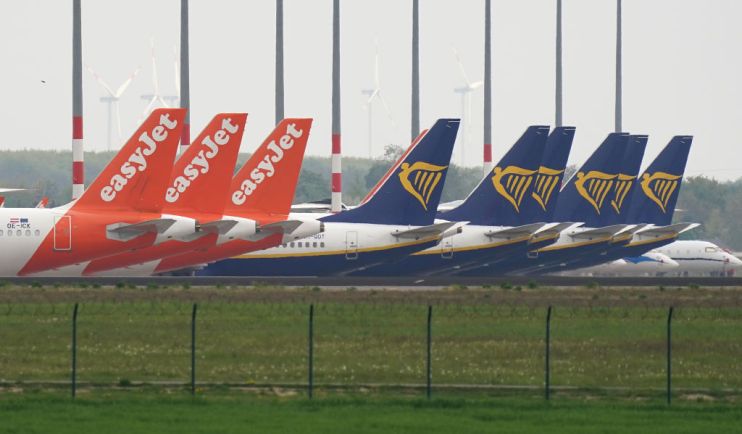Airlines getting off scot-free with no fines issued for decades, says Which

Airlines are getting off scot-free from penalties with no fines having been issued due to regulatory action in two decades, according to the consumer group Which.
Which said Britain’s aviation watchdog – the Civil Aviation Authority (CAA) – should be doing more to “name and shame” airlines, withdraw licences and pursue action “in the courts” where behaviour has been unlawful.
It follows an announcement from the Department for Transport (DfT) this week that intends on giving the CAA more power to fine airlines who break consumer laws.
The group today called on the Prime Minister to “urgently legislate” to make fining powers a reality for the CAA.
The watchdog was previously granted the ability to apply to courts for enforcement orders in 2003, but Which understands it has used this power just once against a major airline.
This came in 2018, but Ryanair – the airline involved – was able to escape punishment following a three-year court battle that saw it belatedly agree to pay passengers compensation for flights cancelled as a result of a pilot strike.
Rocio Concha, Which directory of policy and advocacy, said: “Passengers have repeatedly endured unfair and in some cases unlawful treatment by some airlines in recent years and meaningful action is long past due.
“The government must act without delay and legislate to grant the CAA the powers it needs to issue hefty fines, and hold airlines to account when they break the law. Until it does so, UK travellers’ rights will be worth no more than the paper they are written on.”
The calls come as airlines’ poor compensation practices come increasingly under the spotlight.
This month, the US government fined British Airways $1.1m (£900,000) for complaints about unpaid refunds during the pandemic, with Which saying today that the lack of similar action from UK authorities was an “embarrassing indictment of weak passenger protections in this country”.
In May, a Sunday Times investigation found that Wizz Air was yet to pay nearly £5m in unpaid refunds to British passengers across 881 outstanding county court judgements.
Previous Which analysis in 2021, found that approximately 2.3m people in the UK were left out of pocket for flights they could not take during the pandemic
In its statement this morning, the consumer group took particular issue with budget airlines Ryanair, Wizz Air and Easyjet, as well as British Airways.
In response, the often-combative Ryaniar refuted all claims, stating “any Ryanair customers who are entitled to compensation due to staff strikes in 2018 and who applied directly to Ryanair for compensation, have received compensation directly from Ryanair in line with EU261″.
Low-cost carrier Easyjet also hit back, stating “Easyjet refutes the suggestion that we do not comply with our legal obligations relating to the passenger regulations governing disrupted flights”.
“We provide customers with a self-service tool which enables them to reroute quickly and easily on alternative flights if their flight is cancelled.”
A British Airways spokesperson said: “Where a customer’s flight is cancelled, we always offer options including a full refund, rerouting or rebooking onto another service, including with other airlines. We always meet our legal obligations.”
A spokesperson for Wizz Air previously told City A.M.: “Wizz Air has resolved the vast majority of the county court judegment (CCJ) cases and we are in the process of updating the court records to reflect this. We are currently finalising the outstanding CCJs and can assure all passengers will be reimbursed as soon as possible.
“Last year, Wizz Air faced extraordinary operational challenges that meant we did not meet our own standards in the level of service delivered. Since then we have taken significant steps, including implementing structural and organisational changes.”
Anna Bowles, head of consumer at the CAA, said: “We have regularly asked for stronger consumer enforcement powers, including the ability to impose fines on airlines.
“This would allow us to take faster action when appropriate and bring our powers in line with other sectoral regulators.”